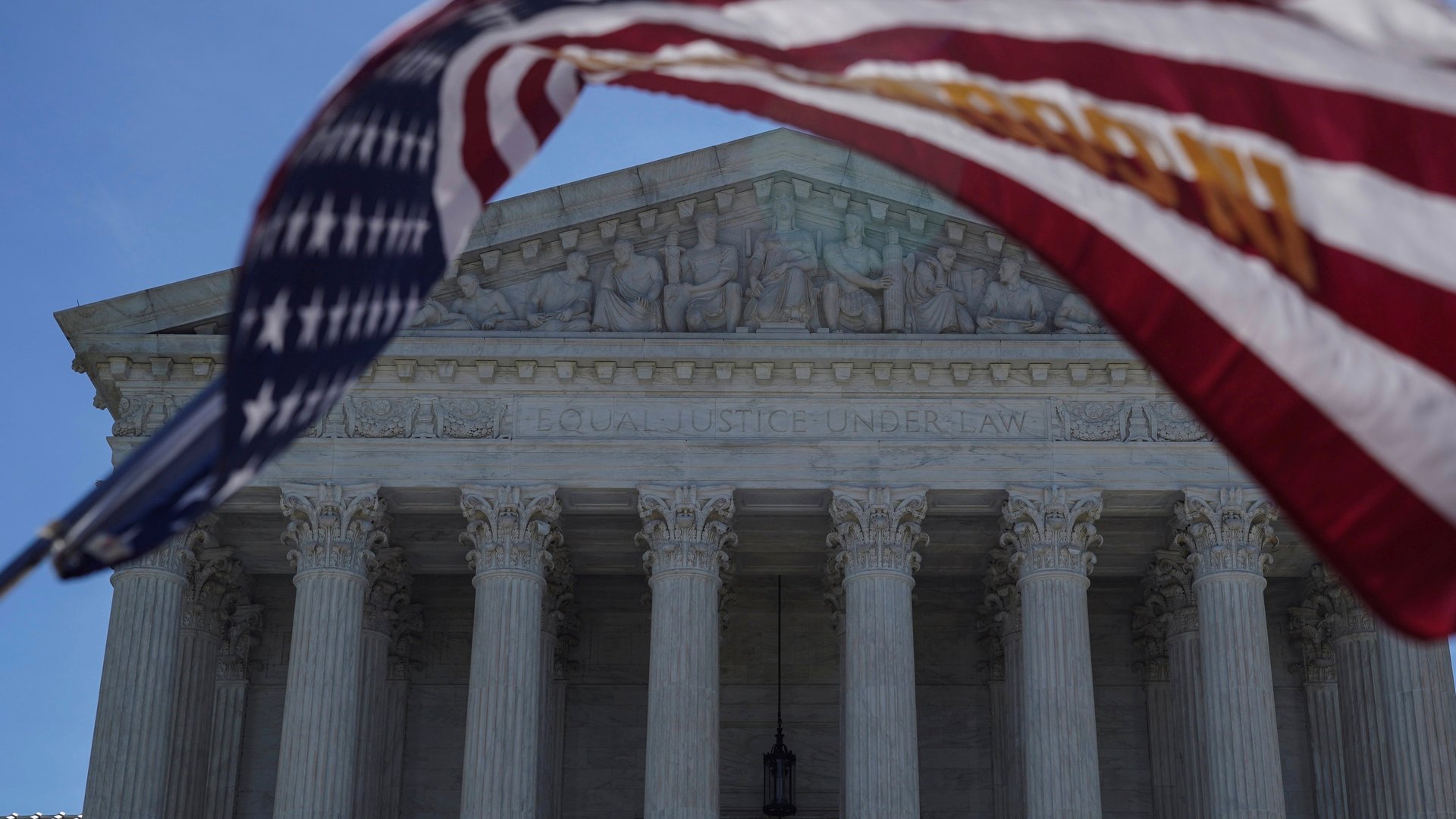Should citizenship be a question on the US census?
States, cities, counties, and civil rights groups are in a legal battle with the US federal government over the 2020 census. Today, the Supreme Court will hear oral arguments in the case, Department of Commerce v. New York. And the outcome will affect all US residents, whether or not they are citizens.


States, cities, counties, and civil rights groups are in a legal battle with the US federal government over the 2020 census. Today, the Supreme Court will hear oral arguments in the case, Department of Commerce v. New York. And the outcome will affect all US residents, whether or not they are citizens.
The dispute stems from the fact that the government wants to add a citizenship status question to the census. The stated premise—provided by commerce secretary Wilbur Ross last year when announcing the new query—is that this is a routine addition meant to assist the Department of Justice’s civil rights division in enforcing federal voting rights laws.
Opponents of the addition argue that the justification for the policy shift is much more sinister: that it’s motivated by animus against minorities. By asking about citizenship status, they say, the data will end up skewed, with far fewer residents responding to the government census because they will be intimidated. They believe that the federal government knows this will happen and perhaps even wants this lack of participation, hoping to deter respondents who are not documented or who simply prefer not to announce their status, based on the administration’s stance on immigration. Ultimately, the numbers the census yields will influence federal funding and congressional representation from certain districts with significant immigrant populations.
In January, a New York district court agreed with that position, concluding that the government’s voting law enforcement reasoning was a mere pretext, tacked on after it had already decided to add the citizenship question to the upcoming census. It thus barred the new question. In March, a California court concluded that the citizenship question violates the US Constitution’s enumeration clause, which provides that “representatives…shall be apportioned among several states…according to their respective numbers,” and dictates that a census be taken every 10 years. It too barred the question.
The Constitution refers to “persons” and not “citizens” or “legal residents,” which makes the distinction between lawful residents and those who are present without documentation dubious, according to some legal scholars. The first Census Act called on district marshals to swear that they would undertake a “just and perfect enumeration and description of all persons resident within [their] district.” Myna Perez, a voting rights expert and the deputy director of the Brennan Center for Justice, argues that this is evidence of the original intent that everyone be counted, regardless of immigration status.
The federal government has asked the Supreme Court to consider both the New York and California decisions. It claims that the citizenship question isn’t new and appeared on most of the previous versions of the census. They say that it’s a standard query and that, even if the justification provided was indeed a pretext, the citizenship question is still legitimate.
Yet, as Amy Howe points out in SCOTUS Blog, the government concedes that the question will deflate the data. Its own briefs predict that about 6.5 million people will not be counted in the next census because they won’t want to respond to the citizenship question and, as a result, end up invisible.
A Georgetown Law Journal article (pdf) in April disputes the government’s account of history altogether, arguing that the US is misleading the courts when it states that there has been a nearly “unbroken chain” of counting citizenship in the census. The government is conflating related questions—including birthplace, year of immigration, and parents’ birthplaces—with the explicit citizenship question, downplaying the extent to which the census asked about naturalization or citizenship only to subsets of the population for statistical sampling purposes, and failing to distinguish between government surveys made for other purposes and the census itself. Contrary to the government’s contention, then, “never in the census’s 230-year history has the census sought the citizenship status of every person in the country,” the authors write (emphasis in the original).
The high court will have a lot to mull. Not only will it be considering evidentiary and constitutional questions, but it also has to contend with the government’s claim that courts cannot review this case at all and that the opponents bringing actions against the government have no standing to challenge the added question because they are merely “speculating” about the possible effects.
It seems highly unlikely that the justices will find for the government on either of those arguments. Instead, we can probably expect to see two different accounts of history, with liberals on the court examining the nuances of past citizenship-related questions while conservatives refer to the “unbroken chain” of historical citizenship queries to support a finding that the addition is justified. Either way, they are under pressure to reach a conclusion quickly and don’t have too much time to consider, as the issue must soon be settled and the final draft of the census has to get to the printers and be distributed to all US “persons,” beginning in Alaska in January of 2020 and throughout the country by March of next year.